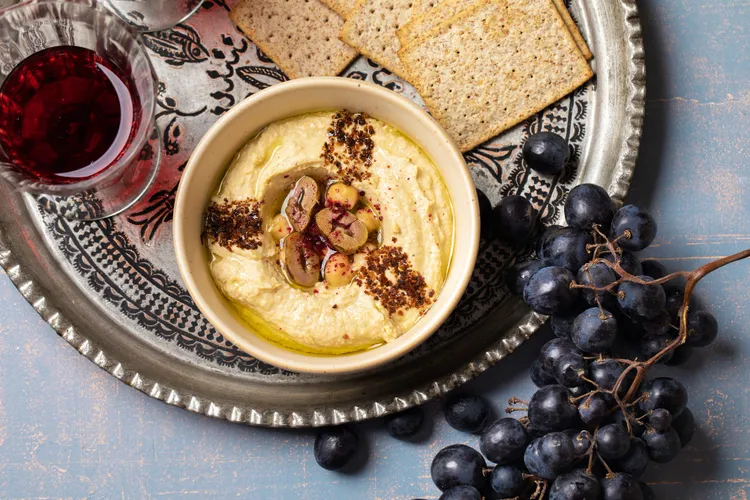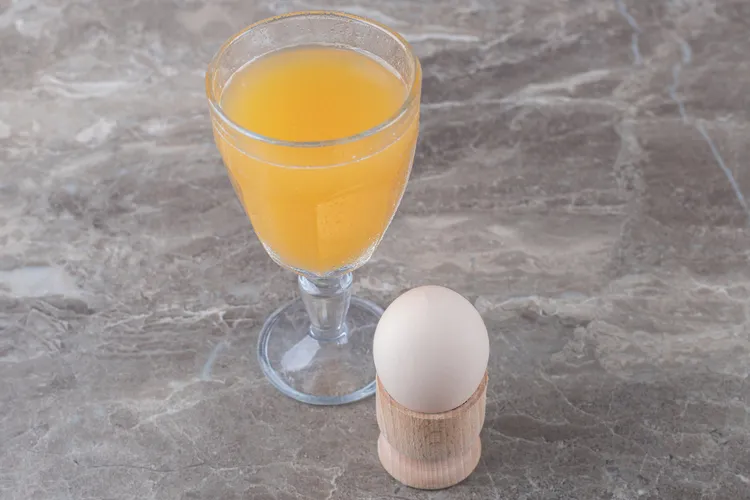The Best Foods for Your Body: Nourishing Your Brain, Muscles, Eyes, Hair, and More
In today’s fast-paced world, fueling your body with the right foods is essential for optimal health and performance. Every part of your body - brain, muscles, eyes, hair, heart, and beyond - has unique nutritional needs. By choosing foods rich in specific nutrients, you can support cognitive function, build strength, enhance vision, promote healthy hair, and improve overall well-being. Whether you’re aiming to boost brainpower, strengthen muscles, or maintain vibrant hair, this guide has you covered.

Why Food Matters for Your Body
Food is more than just fuel; it’s the foundation of your body’s health. Nutrients like vitamins, minerals, proteins, fats, and carbohydrates play specific roles in maintaining and enhancing the function of different organs and systems. Poor dietary choices - think processed foods high in sugar and unhealthy fats - can lead to fatigue, weakened immunity, and chronic diseases. Conversely, a nutrient-rich diet supports everything from mental clarity to physical strength. Below, we dive into the best foods for key areas of your body, explaining why they work and how to include them in your daily meals.
- Best Foods for Your Brain
Your brain is the control center of your body, responsible for memory, focus, mood, and decision-making. To keep it sharp, prioritize foods rich in omega-3 fatty acids, antioxidants, B vitamins, and other brain-boosting nutrients.
Top Foods:
- Fatty Fish (Salmon, Mackerel, Sardines): Rich in omega-3 fatty acids (DHA and EPA), which support brain cell communication and reduce inflammation. A 2020 study in Nutrients linked omega-3s to improved memory and cognitive function.
- Blueberries: Packed with antioxidants like flavonoids, which protect brain cells from oxidative stress and may delay cognitive decline, per a 2019 study in The American Journal of Clinical Nutrition.
- Nuts (Especially Walnuts): Provide healthy fats, vitamin E, and antioxidants that support brain health and reduce the risk of neurodegenerative diseases.
- Leafy Greens (Spinach, Kale): High in folate, vitamin K, and lutein, which are linked to slower cognitive decline, according to the Journal of Alzheimer’s Disease (2018).
- Whole Grains (Oats, Quinoa, Brown Rice): Supply steady glucose for brain energy and B vitamins for nerve function.
- Dark Chocolate (70%+ Cocoa): Contains flavonoids and caffeine, which enhance memory and focus, per a 2021 study in Frontiers in Nutrition.
Tips for Your Diet:
- Aim for 2–3 servings of fatty fish per week (e.g., grilled salmon or sardines on toast).
- Add a handful of blueberries to your morning oatmeal or smoothie.
- Snack on a small portion of walnuts or almonds daily.
- Incorporate spinach into salads, soups, or smoothies for a nutrient boost.
- Best Foods for Your Muscles
Muscles need protein, amino acids, and specific micronutrients to repair, grow, and perform at their best, whether you’re an athlete or simply aiming to stay strong.
Top Foods:
- Lean Proteins (Chicken Breast, Turkey, Eggs): Provide high-quality protein and essential amino acids like leucine, which stimulate muscle protein synthesis, per a 2017 study in The Journal of Nutrition.
- Greek Yogurt: Rich in protein and probiotics, it supports muscle recovery and gut health, which indirectly aids muscle function.
- Legumes (Lentils, Chickpeas, Black Beans): Plant-based protein sources high in fiber and magnesium, which supports muscle relaxation and recovery.
- Tofu and Tempeh: Excellent vegetarian protein sources that provide iron and calcium for muscle function.
- Sweet Potatoes: A complex carbohydrate source that replenishes glycogen stores post-workout, paired with potassium for muscle contraction.
- Bananas: High in potassium and magnesium, which prevent muscle cramps and aid recovery.
Tips for Your Diet:
- Consume 20–30 grams of protein per meal (e.g., a chicken breast or a bowl of lentil soup).
- Pair carbs and protein post-workout, like a sweet potato with grilled chicken or a tofu stir-fry with quinoa.
- Snack on Greek yogurt with fruit for a protein-packed treat.
- Keep bananas on hand for a quick pre- or post-workout snack.
- Best Foods for Your Eyes
Your eyes rely on antioxidants, vitamins, and minerals to protect against age-related decline, maintain sharp vision, and reduce strain in our screen-heavy world.
Top Foods:
- Carrots: Rich in beta-carotene, a precursor to vitamin A, essential for retina function and night vision, per the American Academy of Ophthalmology.
- Leafy Greens (Kale, Spinach): Contain lutein and zeaxanthin, antioxidants that filter harmful blue light and protect against macular degeneration, per a 2018 study in Nutrients.
- Eggs: Provide lutein, zeaxanthin, and zinc, which support eye health and reduce the risk of cataracts.
- Citrus Fruits (Oranges, Grapefruit): High in vitamin C, an antioxidant that protects the eyes from oxidative damage.
- Fatty Fish (Salmon, Tuna): Omega-3s reduce the risk of dry eyes and glaucoma, according to a 2020 study in Ophthalmology.
- Bell Peppers: Packed with vitamin C and beta-carotene, they support overall eye health.
Tips for Your Diet:
- Add shredded carrots to salads or blend them into smoothies.
- Sauté spinach or kale as a side dish or mix into omelets.
- Enjoy a boiled egg as a snack or part of breakfast.
- Include citrus fruits in your daily fruit intake or as a refreshing snack.
- Best Foods for Your Hair
Healthy, shiny hair depends on nutrients that support scalp health, hair follicle strength, and moisture retention. Deficiencies in certain vitamins or minerals can lead to hair loss or dullness.
Top Foods:
- Eggs: Rich in biotin (vitamin B7), protein, and zinc, all of which promote hair growth and prevent breakage, per a 2017 study in Dermatology Practical & Conceptual.
- Spinach: Provides iron, folate, and vitamin A, which support scalp health and prevent hair loss due to iron deficiency.
- Avocados: Loaded with healthy fats and vitamin E, which nourish the scalp and improve hair texture.
- Nuts and Seeds (Almonds, Chia Seeds): Offer zinc, selenium, and omega-3s, which reduce hair thinning and promote shine.
- Sweet Potatoes: High in beta-carotene, which converts to vitamin A to support sebum production for a healthy scalp.
- Berries (Strawberries, Blueberries): Packed with vitamin C, which aids collagen production and strengthens hair follicles.
Tips for Your Diet:
- Incorporate eggs into breakfasts or snacks (e.g., egg salad or frittatas).
- Add avocado to toast, salads, or smoothies for creamy texture and hair benefits.
- Sprinkle chia seeds or almonds on yogurt or oatmeal.
- Enjoy berries as a dessert or blend them into a nutrient-packed smoothie.
- Best Foods for Your Heart
A healthy heart is critical for overall vitality, and diet plays a major role in preventing cardiovascular disease.
Top Foods:
- Oily Fish (Salmon, Sardines): Omega-3s lower triglycerides and reduce inflammation, per the American Heart Association.
- Oats: Rich in soluble fiber (beta-glucan), which lowers LDL (“bad”) cholesterol, according to a 2019 study in The Lancet.
- Nuts (Almonds, Walnuts): Provide heart-healthy monounsaturated fats and fiber to reduce cholesterol levels.
- Berries: Antioxidants like anthocyanins lower blood pressure and protect blood vessels.
- Leafy Greens: High in nitrates and potassium, which support healthy blood pressure and circulation.
- Dark Chocolate (70%+ Cocoa): Flavonoids improve blood flow and reduce blood pressure, per a 2020 study in Hypertension.
Tips for Your Diet:
- Start your day with oatmeal topped with berries and nuts.
- Replace red meat with fatty fish twice a week.
- Snack on a small piece of dark chocolate for a heart-healthy treat.
- Add leafy greens to soups, salads, or smoothies.
- Best Foods for Your Skin
Your skin, the body’s largest organ, reflects your diet. Nutrient-rich foods combat aging, promote elasticity, and protect against damage.
Top Foods:
- Avocados: Healthy fats and vitamin E hydrate skin and reduce inflammation, per a 2021 study in Journal of Cosmetic Dermatology.
- Sweet Potatoes: Beta-carotene protects against UV damage and promotes a healthy complexion.
- Fatty Fish: Omega-3s reduce inflammation and keep skin supple.
- Tomatoes: Contain lycopene, an antioxidant that protects against sun damage and supports collagen production.
- Nuts and Seeds: Provide zinc and vitamin E for skin repair and hydration.
- Green Tea: Rich in catechins, which reduce redness and protect against UV damage, per a 2018 study Molecules.
Tips for Your Diet:
- Add tomatoes to sauces, salads, or sandwiches.
- Sip green tea as a morning or afternoon beverage.
- Use avocado as a spread or in smoothies for skin-nourishing fats.
- Snack on sunflower seeds or almonds for a nutrient boost.
- Best Foods for Your Bones
Strong bones require calcium, vitamin D, magnesium, and other nutrients to maintain density and prevent osteoporosis.
Top Foods:
- Dairy (Milk, Yogurt, Cheese): High in calcium and often fortified with vitamin D, essential for bone strength, per the National Osteoporosis Foundation.
- Leafy Greens (Kale, Collard Greens): Provide calcium and vitamin K, which supports bone mineralization.
- Tofu: Often fortified with calcium, it’s a great plant-based option.
- Almonds: Supply calcium and magnesium for bone health.
- Fatty Fish (Salmon, Mackerel): Rich in vitamin D, which aids calcium absorption.
- Fortified Plant Milks (Almond, Soy): Offer calcium and vitamin D for non-dairy diets.
Tips for Your Diet:
- Use fortified plant milk in coffee, smoothies, or cereal.
- Add kale to soups or smoothies for a calcium boost.
- Snack on a handful of almonds daily.
- Include yogurt as a breakfast or snack option.
- Best Foods for Your Immune System
A strong immune system helps you fight off infections and stay healthy year-round.
Top Foods:
- Citrus Fruits (Oranges, Lemons): High in vitamin C, which boosts white blood cell production, per a 2017 study in Nutrients.
- Yogurt: Probiotics support gut health, where 70% of the immune system resides, per Frontiers in Immunology (2019).
- Garlic: Contains allicin, which has antimicrobial properties and enhances immune response.
- Ginger: Anti-inflammatory and antioxidant properties support immunity.
- Spinach: Rich in vitamin C, beta-carotene, and antioxidants for immune support.
- Almonds: Vitamin E and zinc bolster immune function.
Tips for Your Diet:
- Add garlic and ginger to stir-fries, soups, or teas.
- Enjoy citrus fruits as snacks or in water for hydration.
- Include yogurt in smoothies or as a parfait with fruit and nuts.
- Toss spinach into salads or cooked dishes.
Practical Tips for Incorporating These Foods
- Plan Balanced Meals: Aim for a plate with colorful vegetables, lean protein, whole grains, and healthy fats to cover multiple body systems.
- Shop Smart: Stock up on staples like oats, lentils, nuts, and frozen berries, which are versatile and budget-friendly.
- Batch Cook: Prepare dishes like veggie-packed soups or grain bowls to ensure nutrient variety throughout the week.
- Snack Strategically: Keep nutrient-dense snacks like almonds, yogurt, or fruit on hand to avoid processed junk food.
- Stay Hydrated: Water supports every bodily function, so aim for 8–10 cups daily, adjusted for activity and climate.
- Consult a Professional: If you have specific health conditions, work with a dietitian to tailor your diet.
Common Myths About Nutrition and Body Health
Myth 1: You Need Meat for Muscle Growth
- Truth: Plant-based proteins like tofu, lentils, and quinoa can fully support muscle repair and growth when consumed in adequate amounts.
Myth 2: Supplements Can Replace Whole Foods
- Truth: Whole foods provide a complex mix of nutrients and fiber that supplements can’t replicate. Use supplements only to fill specific gaps.
Myth 3: All Fats Are Bad for Your Heart
- Truth: Healthy fats from avocados, nuts, and fish support heart health, unlike trans fats in processed foods.
Myth 4: Carrots Alone Will Improve Your Vision
- Truth: While carrots support eye health, a variety of nutrients from greens, eggs, and fish are needed for optimal vision.
The Bigger Picture: A Holistic Approach
While specific foods target specific body parts, a balanced diet is key to overall health. Focus on variety, moderation, and whole foods over processed options. Pair your diet with lifestyle factors like regular exercise, adequate sleep, and stress management for maximum benefits. The Mediterranean Diet, which emphasizes vegetables, fruits, whole grains, nuts, and fatty fish, is often cited as a gold standard for supporting multiple body systems, per a 2018 study in The New England Journal of Medicine.
Your body is a complex system that thrives on the right nutrients. By incorporating foods like fatty fish, leafy greens, berries, nuts, and legumes, you can nourish your brain, muscles, eyes, hair, heart, and more. These foods aren’t just good for you - they’re delicious and versatile, making it easy to build a diet that supports both health and enjoyment. Start small by adding one or two of these foods to your meals each day, and watch how your body responds with increased energy, strength, and vitality.
Take charge of your health today - your brain, muscles, eyes, and hair will thank you for it!









